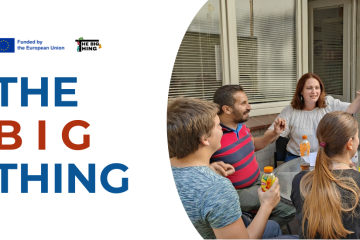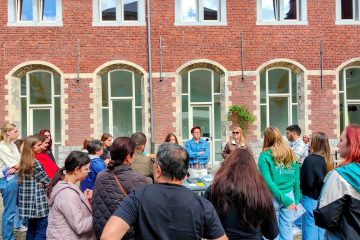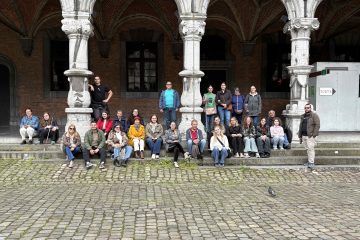Marginalized youth often encounter significant discrimination and barriers to social integration, which limit their participation in democratic processes. These challenges underscore the urgent need for non-formal learning opportunities that empower young people, build their confidence, and encourage democratic engagement. Disadvantaged groups, particularly youth with disabilities, continue to show low levels of political participation. This is largely due to persistent accessibility issues, especially during elections.
As part of the ‘Inclusive Evolution 2024’ project, we collaborated with Asociatia Babilon Travel (Romania) and Eesti People to People (Estonia) to produce a comparative report called “Accessibility Barriers in Democratic Participation”. This report, based on the findings from questionnaires and individual interviews with people with disabilities who have participated in elections in one of the three countries, explores the challenges they face in engaging with democratic processes, particularly voting, focusing on the experience of persons with sensory and motor disabilities. It provides a comparative analysis of the experiences of voters with sensory and motor disabilities in Romania, Estonia, and Belgium, highlighting the common barriers that limit their participation.
The study highlights three primary barriers to democratic participation:
- Physical Barriers: Many polling stations lack the necessary infrastructure to accommodate individuals with mobility impairments.
- Communicational Barriers: Electoral materials are often inaccessible, making it difficult for those with visual or hearing impairments to engage fully in the voting process.
- Attitudinal Barriers: The lack of properly trained election staff often leads to misunderstandings or mistreatment of individuals with disabilities at polling stations.
In all three countries, the research found common issues with inaccessible voting materials, insufficiently equipped polling stations, and the need for better-trained election staff to address the specific needs of voters with disabilities.
Recommendations
The report stresses the importance of implementing assistive technologies and adopting accessible voting procedures to ensure that all citizens, regardless of ability, can participate in democratic processes. These measures aim to create a more inclusive and equitable voting environment across Europe.
To achieve this, collaborative efforts and knowledge-sharing among European countries are essential. By working together, European nations can develop policies that allow individuals with disabilities to exercise their democratic rights independently and with dignity.
Next Steps: Advocacy and Policy Reform
The findings and recommendations from the Accessibility Barriers in Democratic Participation report will be shared with national institutions, the European Parliament, and other relevant European bodies. The goal is to advocate for policy improvements that will foster a more inclusive and accessible democratic system across Europe.
Promoting greater accessibility in democratic participation is a crucial step toward ensuring that every citizen has the opportunity to contribute to the future of their communities and countries. By addressing these barriers, we can build a more just and inclusive society for all.
Read the report
Accessibility Barriers in Democratic Participation – English (PDF)
Accessibility Barriers in Democratic Participation – English (Word)
Accessibility Barriers in Democratic Participation – Français (PDF)
Accessibility Barriers in Democratic Participation – Français (Word)


